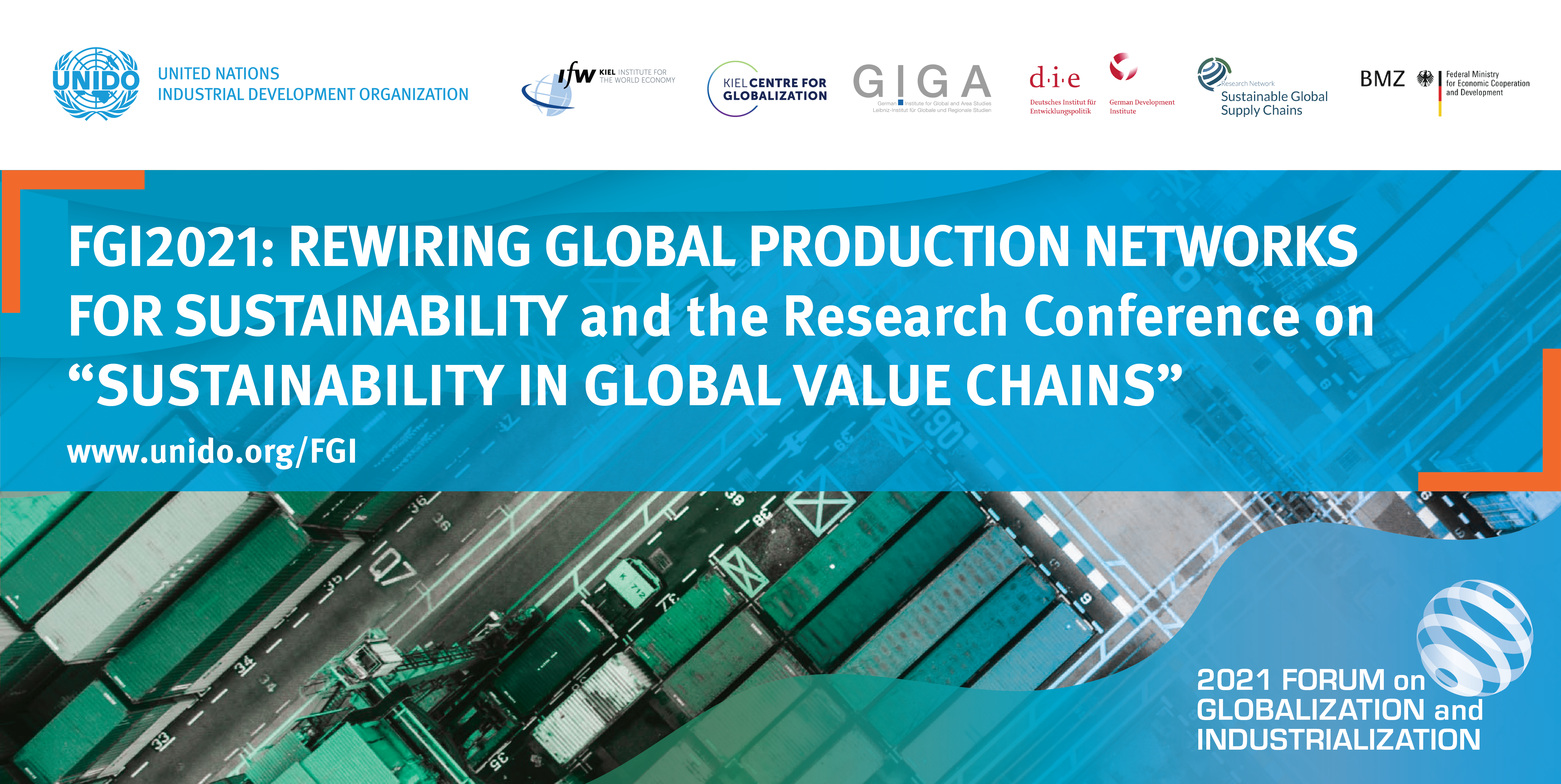Sustainability within global supply chains requires agile approaches to knowledge sharing and standards setting
09 December 2021

VIENNA, 9 December 2021 - The COVID-19 pandemic and its related socioeconomic impacts have revealed the fundamental challenges that global value chains (GVCs) face, making clear that transformation and greater resilience cannot take place without greater sustainability. The urgency of this need was at the heart of the 2021 Forum on Globalization and Industrialization (FGI), during which UNIDO’s Deputy to the Director General, Hiroshi Kuniyoshi, stressed in his opening remarks that “if we can find solutions that respond to these various challenges, we have an opportunity to not only build back, but build back better and rewire global production networks for sustainability.”
The sixth edition of the Forum on Globalization and Industrialization - a joint initiative of the United Nations Industrial Development Organization (UNIDO), the Kiel Centre for Globalization (KCG) and the Kiel Institute for the World Economy (IfW Kiel), together with the Research Network on Sustainable Global Supply Chains, the German Institute for Global and Area Studies (GIGA Hamburg) and the German Development Institute (DIE-GDI), and supported by German Federal Ministry for Economic Cooperation and Development (BMZ) - tackled the timely subject topic of “Rewiring Global Production Networks for Sustainability”. Over two days, the Forum brought together more than 580 participants from over 50 countries in virtual plenaries and discussions.
Setting the scene for the Forum’s first day of virtual plenary sessions, Kuniyoshi highlighted the need for close and inclusive multilateral cooperation, saying, “as new standards and principles emerge to foster a more sustainable framework, we must be sure to speak the same language, a language that is understood by all actors operating within the broader concept of global value chains.”
Similarly, Ambassador Götz Schmidt-Bremme, Permanent Representative of the Federal Republic of Germany to the Office of the United Nations in Vienna, underlined the role of the forum in supporting such collaborations, as it “provides a unique opportunity to discuss how stakeholders can place resilience and sustainability at the core, and link long-term recovery strategies to the guiding principles of the global development agenda.”
The four panel sessions brought together business practitioners, policy experts, and academics, speaking to different aspects of sustainability in global supply chains and beyond. The first two sessions discussed sustainability in the multilateral context. They addressed how supply chain sustainability links to the global sustainability agenda, as well as challenges and ways forward regarding the sustainable governance of supply chains given that firms operate in multiple countries. In this context, sessions three and four explored concrete ways to measure and monitor sustainability and concrete steps to achieve sustainability along the entire supply chain. A common thread was the need for close public-private partnerships based on better evidence, such as the collection of new and relevant data.
The second day of the Forum was opened by the President of GIGA, Amrita Narlikar, who noted a significant gap in the literature with regards to environmental and, in particular, social sustainability and participation in GVCs. The parallel sessions therefore sought to provide a platform for the latest empirical research to foster greater dialogue on the many facets of sustainability across global value chains and bridge disciplines. As UNIDO and its partners operate at the nexus between policy and research perspective, promoting a unifying framework, the research and insights will not only allow UNIDO to better engage and respond to the challenges its Member States and stakeholders face, but also promote innovative thinking on GVC transitions.
UNIDO’s goals with the Forum are in line with its support for inclusive and sustainable industrial development as part of its mandate. Through flagship publications such as the Industrial Development Report (IDR), and platforms such as the Industrial Analytics Platform (IAP), UNIDO enables evidence-based policymaking, so that the international community to act promptly and vigorously to build a better post-COVID-19 future.
- You can watch the recording of the plenary sessions of Day 1 on UNIDO’s Youtube Channel.
- The recordings of the Research Conference will be made available in due course and accessible via the www.unido.org/fgi
For more information please contact:
Adnan Seric, Research and Industrial Policy Officer, UNIDO Research and Policy Advice Division